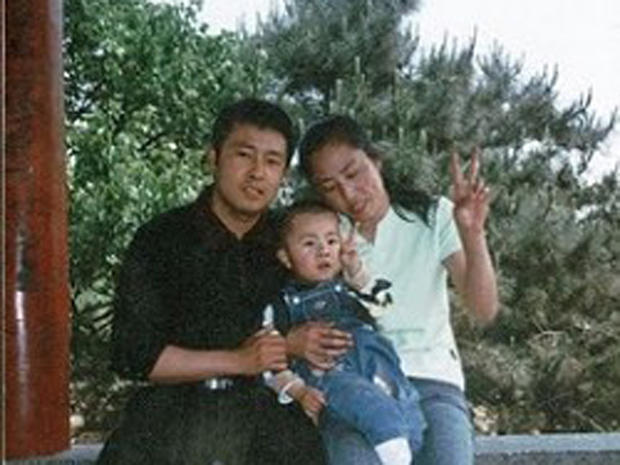Online sympathy boom for China murder suspect
This story was filed by Hai Huang, in the CBS News Beijing bureau
Xia Junfeng became a food hawker in China's bustling northeastern city of Shenyang after losing his job at a state-owned electrical machinery plant.
He then made a decent living selling sausages and kabobs on the street, but was always vigilant of the chengguan - city authorities responsible for enforcing parking regulations and order.
When you see hawkers on the run, the chengguan are usually lurking nearby.
Once in 2009, Xia did not escape as quickly as the others. When the chengguan caught him and his wife, they kicked him, confiscated the gas cylinder he used for cooking, and took him to their office.
A few hours later, Xia used his meat knife to stab two chengguan officers to death.
Xia was sentenced to death by Shenyang Intermediate People's Court later that year, with a subsequent appeal that was rejected by the court.
Xia' wife insists her husband is friendly and soft-spoken. The only way he would have killed anyone, she says, is in self-defense.
"We found six witnesses to prove Xia Junfeng was beaten. Though they are willing to testify for him, they were not allowed to appear in court," Xia's wife, Zhang Jing, told state-backed newspaper People's Daily Online.
Sympathy for the convicted murderer soon gained momentum online, with backing coming from thousands of posters on microblogs like Weibo, China's version of Twitter. China's online community made donations, wrote letters, and provided legal advice in an attempt to vindicate Xia.
One online activist from Fujian claims to have collected $27,761 in donations to help Xia in just two days.
Compassion in China for a large underprivileged class, who many believe are relegated to lives of crime, seems to be growing.
A long-time distrust in the state-sanctioned media is forcing Internet-savvy Chinese to think more critically about the government and their own society.
China's online community now uses the web to air its collective grievances about the growing rich-poor income gap and discontent between social classes.
Sympathy for the disadvantaged members of society - criminals notwithstanding - may be a little more understandable as a manifestation of a long-building urge for social justice.
Prominent human rights lawyers have defended Xia free of charge, celebrities have jumped in to speak on his behalf, and well-known figures from China's television and film scene have donated money to his cause.
But Xia remains in prison, awaiting his death sentence.
"Xia Junfeng earned a living by his hard work but is now sentenced to death, while corrupt officials steal millions of dollars without suffering any severe punishments. Is this the so-called justice you are pursuing," one Chinese blogger on Weibo asked rhetorically of his government.
It's a far cry from holding their government to account, but the Internet is giving voice to frustrations which have gone stifled in China for generations, and they're getting louder.
